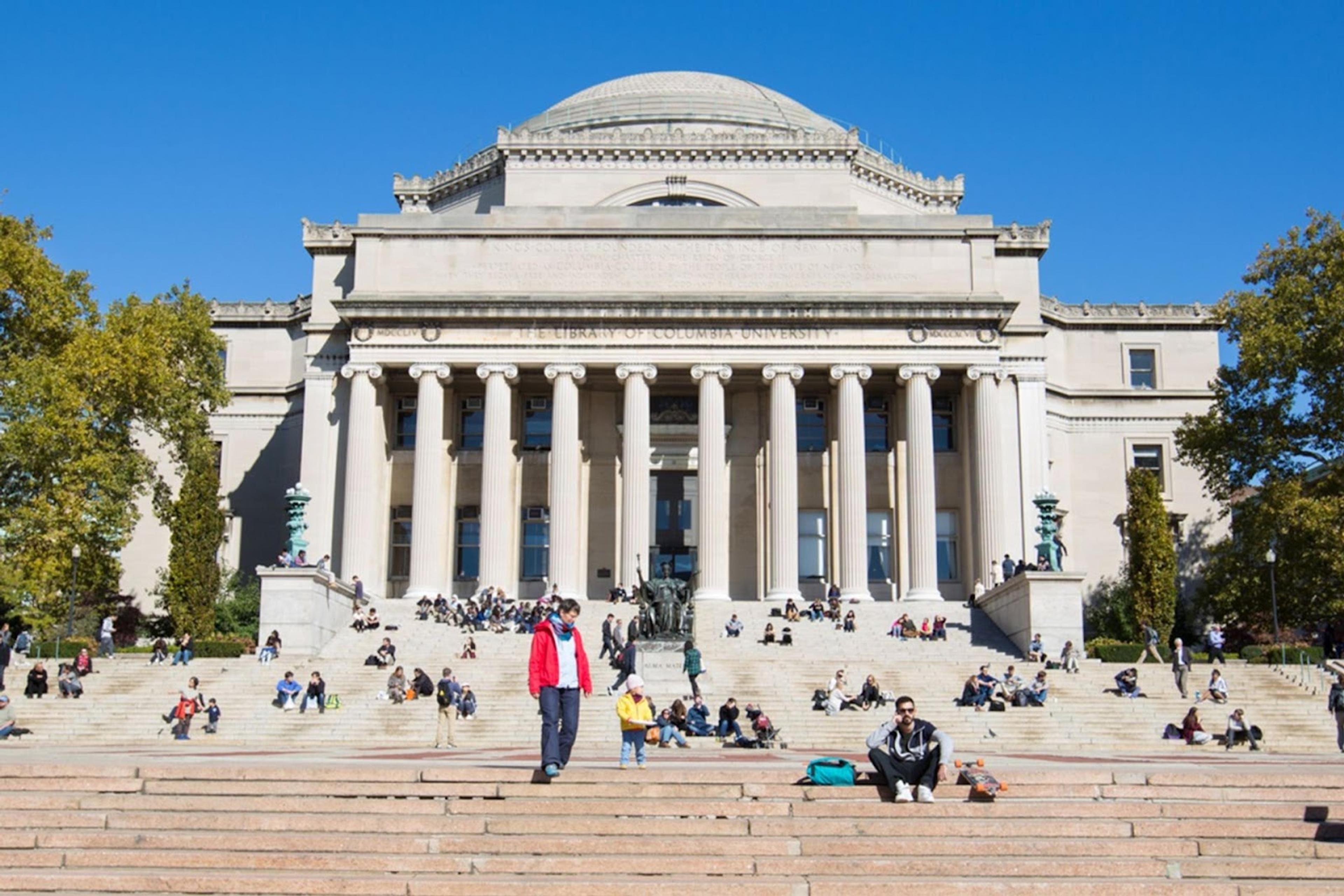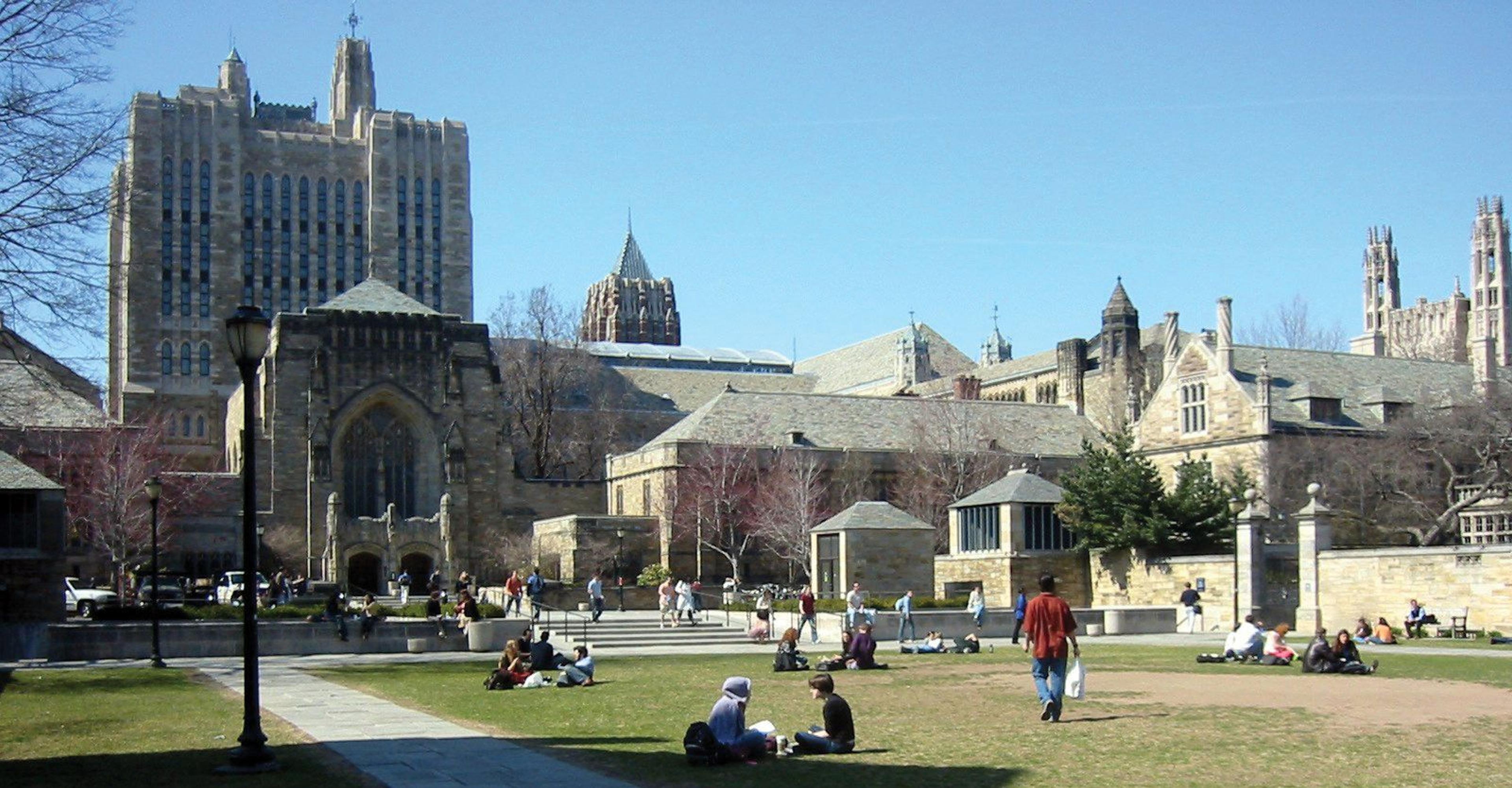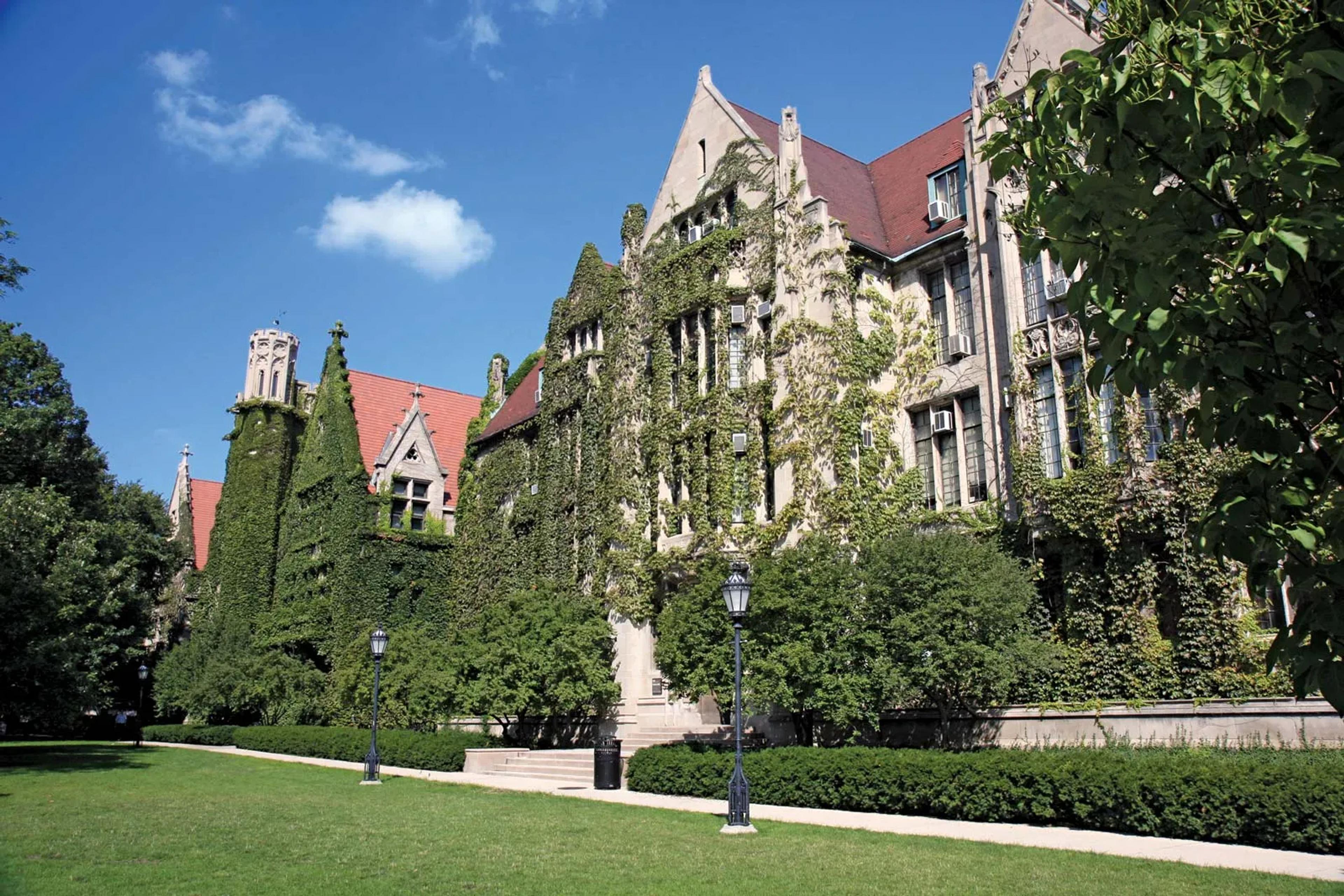JD/MBA Programs: Top Schools, How to Apply, and Who It’s Right For
Explore the top JD/MBA programs, how to apply, and whether the dual degree fits your career goals in law, business, or both.
Posted June 13, 2025

Table of Contents
Combining a law degree with a business education creates a powerful combination. JD/MBA programs allow students to complete both degrees in about four years, faster than earning them separately. These dual degree programs are designed for those who want to build strong skill sets across law and business, whether to lead in law firms, corporate boardrooms, or policy roles.
This guide covers how JD/MBA programs work, who they’re best suited for, how to apply, and which schools offer the strongest options.
What Is a JD/MBA Program?
A JD/MBA program is a dual degree program that lets students earn a Juris Doctor (JD) and a Master of Business Administration (MBA) at the same time. Most programs are full-time and take four years to complete. Some offer a three-year accelerated course.
These programs are typically offered by universities that have both a law school and a business school. Students take a mix of law and business courses across multiple academic years and summers. JD/MBA students graduate with the expertise to work in legal, financial, or strategic leadership positions.
How JD/MBA Programs Work
Duration and Structure
JD/MBA programs typically last four years, compared to the five years it would take to complete both degrees separately. Some schools offer a three-year version for highly motivated students willing to study year-round, including during summer.
Here’s a typical structure:
- Year 1: First-year law or MBA core
- Year 2: First year of the other degree
- Year 3: A mix of advanced law and business courses + internships
Some programs require students to apply to both the law school and business school separately, while others offer a joint application.
Curriculum
Students complete required coursework from both the law and business schools. This includes foundational legal courses like contracts and constitutional law, and core MBA topics such as finance, strategy, and marketing.
JD/MBA programs often include summer internships and capstone courses. By the third and fourth years, students are taking electives in both schools. Many use these electives to specialize in areas like corporate law, entrepreneurship, or public policy.
Who Should Consider a JD/MBA?
JD/MBA programs are best suited for students who want to gain expertise across two disciplines and apply both sets of knowledge throughout their careers.
Ideal Backgrounds
- Students interested in leadership roles in law firms or corporate legal departments
- Professionals planning to launch startups or manage growing businesses
- Candidates interested in regulatory work, public policy, or cross-border legal work
- Applicants with work experience in law, consulting, finance, or operations
Benefits
- Saves time compared to earning the degrees separately (four years vs. five or more)
- Broader career opportunities after graduation
- Strong alumni networks and recruiting advantages
- A strong foundation in legal reasoning and business administration
Challenges
- Demanding coursework and limited flexibility
- Complex admissions processes
- Higher tuition costs, although financial aid is often available for qualified students
- Fewer opportunities to specialize deeply in either law or business
JD/MBA Recommendations
The best way to increase your odds of acceptance to a JD/MBA program is to work with someone who's been there, who can provide tactical expertise grounded in real experience navigating it themselves and helping others. Here are several JD/MBA candidates and alumni who you can work one-on-one with to strengthen your candidacy:
- Will S.: Wharton JD/MBA, Expert on Nontraditional Backgrounds, Latham & Watkins Associate
- Jasper B.: Stanford JD/MBA & Knight-Hennessy Scholar, Ex-White House & US Navy
- Roman S.: Harvard JD/MBA, Stanford MS in Management Science & Engineering, Founder, Ex-BlackRock/Meta
Top JD/MBA Programs (2025–2026)
Below is a comparison of top JD/MBA programs offered by major U.S. schools. These programs combine leading law and business schools and offer access to top employers and alumni networks.
Program Comparison Chart
| University | Length | GMAT Score Range | Application Type | Notable Feature |
|---|---|---|---|---|
| Harvard (HLS + HBS) | 4 years | 685–695 (HBS) | Separate Applications | Cohort of ~10; strong academic support |
| Stanford | 4 years | Not published | Separate Applications | Flexible completion paths |
| Columbia | 3 years | 675–685 | Joint Application | Accelerated format; pro bono requirement |
| UPenn (Wharton + Carey Law) | 3 years | 675–685 | Wharton's application system | San Francisco semester; integrated cohort |
| Northwestern University | 3 years | 675–685 | Joint Application | No LSAT required; 7 MBA majors available |
| Yale | 4 years | GRE or LSAT | Separate Applications | Flexible timeline; mix of electives |


MBA Application Checklist
Stay on track with your MBA apps. Get a full customizable checklist of what to do, when, and how to do it well.
Harvard University
The JD-MBA program offered by Harvard Law School (HLS) and Harvard Business School (HBS) is Harvard’s oldest MBA joint degree program. Designed to be completed in four years, the program sets graduates up with a skill set necessary for leadership positions across multiple sectors, including private enterprise, government, and nonprofit organizations. Harvard’s JD-MBA program is extremely selective, with only around 10 students accepted into each year’s cohort.
Curriculum Breakdown
- Years 1 & 2: Each year is spent on first-year core curriculum for either the Business School or Law School, chosen in whichever order the student prefers. During the summer of each year, students usually work in a job related to whichever field they chose.
- Years 3 & 4: Students take a Mandatory Joint Degree Program Seminar during either of these years. All other courses are electives for both HLS and HBS. During the summer of Year 3, students work from a variety of legal and business summer internship opportunities.
Note: Candidates are also required to fulfill specific program requirements, including the 2-credit Professional Responsibility Requirement, the HLS Pro Bono Requirement entailing 40 hours of public service, and the 2-credit JD Written Work Requirement.
Admission Requirements
Prospective candidates must apply separately to HLS and HBS and secure independent admission to each school. If you’re a current MBA or JD student, you can apply to the opposite program by its listed deadline. Applications to HBS may be submitted in either of the two rounds of admission, though we recommend submitting your application during Round 1 to ensure the greatest chance of admission.
Deadlines
- Harvard Business School Deadlines:
- Round 1: September 4, 2024
- Round 2: January 6, 2025
- Harvard Law School Deadline:
- February 15, 2024
For more information on Harvard’s JD and MBA programs, read: How to Get Into Harvard Law School and Harvard Business School — MBA Program & Application Overview.

Stanford University
Stanford University offers a JD-MBA joint degree program through Stanford Law School (SLS) and Stanford Graduate School of Business (GSB). With a focus on preparing students for careers in law, public service, or management, this program attracts applicants with its strong emphasis on the practicality of the legal/managerial workspace.
The program offers flexibility in its completion paths:
- Option 1: Begin with two years of law school, followed by the first year of business school, and conclude with primarily business school courses in the final year.
- Option 2: Start with one year of law school, followed by the first year of business school, and then undertake a mix of courses at both schools in the remaining two years.
- Option 3: Commence with one year of business school, followed by the first year of law school, and similarly pursue a blend of courses at both institutions in subsequent years.
Notes:
- Prospective students aiming for the February bar exam may opt for a winter quarter leave during their fourth year to prepare for and take the exam, with a return to classes in the spring quarter, completing the program in 11 quarters.
- Students must complete 84 MBA units and 80 JD units, adding up to a total of 164 units. Stanford says that most students accomplish this within 11 to 12 quarters (approximately four years). Students are also required to complete five quarters (excluding summer) of full-tuition residency study at Stanford GSB.
Admission Requirements
To gain admittance into Stanford’s JD-MBA program, applicants must apply to and receive offers from both Stanford Law School and the Graduate School of Business. They must also specifically state their interest in the joint degree program during the application process. If currently enrolled in either the JD or MBA program, applicants need only to submit their application to the respective program they are not currently enrolled. As for timing, applicants may apply for the JD-MBA joint degree program in any round of admission.
Note: For the Stanford GSB application, applicants must choose the Essay B option (“Why Stanford?”) to articulate their rationale for pursuing the joint degree.
Deadlines
- Stanford GSB
- Round 1:
- Application Deadline: September 10, 2024
- Decision Notification: December 5, 2024
- Round 2:
- Application Deadline: January 8, 2025
- Decision Notification: April 3, 2025
- Round 3:
- Application Deadline: April 8, 2025
- Decision Notification: May 29, 2025
- Round 1:
- Stanford Law School
- December 1, 2023: Application must be received and deemed complete for the Knight-Hennessy Scholars Program.
- February 15, 2024, 11:59 PM PST: Final deadline for application submission.
Interested in learning more about Stanford’s JD and MBA programs? Read our articles, Stanford Law School: Acceptance Rates, Deadlines, & How to Get In, and Stanford GSB — MBA Program & Application Overview.

Columbia University
The JD-MBA Program at Columbia University offers an intensive, cross-disciplinary curriculum designed to equip students with the tools and resources to become key players in the business world. The program is structured over three years, integrating coursework from both Columbia Law School and Columbia Business School. If you’re interested in legal scholarship, Columbia University’s program should be at the top of your list, given the fact that the Law School is home to 14 law journals, including the Columbia Law Review, one of the top legal scholarship publications in the world.
Year-By-Year Breakdown
- Year One: Students complete the first-year foundation curriculum requirements at Columbia Law School.
- Year Two: Jump to Columbia Business School, students complete the core curriculum requirements and may begin taking electives at both schools.
- Year Three: Return to Columbia Law School with the option to register for courses at both schools, including cross-listed classes.
Students must earn 71 law credits and 45 business credits, in addition to separate requirements from each school, to satisfy all degree requirements for both schools. Elective offerings in disciplinary areas outside of business law are available during the second and third years. On top of this, students must work a minimum of 40 hours of pro bono service for their JD program requirements. We know that doing the mental math for degree programs can be difficult, but luckily, Columbia Law School has provided a sample plan of study to help applicants get a better grasp of what each semester will look like. You can find that plan along with a list of courses for the JD-MBA here.
Admission Requirements
Columbia University provides a joint Three-Year JD-MBA application available on the Business School’s application portal. Applicants will also need to submit a Credential Assembly Service (CAS) report via a supplemental form through LSAC. In addition to this and the materials asked for in the traditional Full-Time MBA application, applicants must also respond to the following essay question: “Why are you interested in the J.D./MBA at Columbia University? What are your career goals after completing the program? (500 words).”
First-year JD students at Columbia Law School can also apply for admission into the JD-MBA program by submitting a regular full-time MBA application to the Business School.
Deadlines
- Columbia Business School
- January 2025 Entry
- Round 1
- Application Deadline: June 18, 2024
- Interview Decisions: Rolling
- Final Decisions: Ongoing, no later than August 15
- Round 2
- Application Deadline: August 15, 2024
- Interview Decisions: Rolling
- Final Decisions: Ongoing, no later than August 15
- Round 1
- August 2025 Entry
- Round 1
- Application Deadline: September 10, 2024
- Interview Decisions: By November 15, 2024
- Final Decisions: By December 20, 2024
- Round 2
- Application Deadline: January 7, 2025
- Interview Decisions: By February 20, 2025
- Final Decisions: By March 26, 2025
- Round 1
- Round 3
- Application Deadline: April 1, 2025
- Interview Decisions: By May 1
- Final Decisions: By May 15
- January 2025 Entry
- Columbia Law School
- Early Decision:
- Opens: September 1
- Application Deadline: November 15
- Admissions Decision Released: December 31
- Regular Decision:
- Application Deadline: February 15
- Admissions Decision Released: April 30
- Early Decision:
Looking for more info on Columbia’s law and business schools? Read our articles, How to Get Into Columbia Law School, and Columbia Business School — MBA Program & Application Overview.

University of Pennsylvania
The Carey JD-MBA Program at the University of Pennsylvania combines coursework from UPenn’s Carey Law School and The Wharton School to offer a unique three-year program designed to integrate legal and business education. For students already enrolled at either Wharton or Penn Carey Law, a four-year track is available. This track allows matriculation at the partner school in the second or third year for 1L entrants or in the third year for 2L entrants, with similar curriculum requirements but a different summer program. The university also offers an optional (by application) immersive semester in San Francisco during which students can interact and learn from the regional economy.
Year-By-Year Breakdown
- Year 1: Students take courses from Carey Law School, followed by a summer session of both Law and Wharton courses.
- Years 2 & 3: Blended curriculum of Law and Wharton coursework with a special JD-MBA capstone in the third year.
Students must complete 86 total credit hours in the Law School and a minimum of 15 course units in The Wharton School. As part of the Law School’s program requirements, students must also conduct at least 70 hours of supervised pro bono legal work.
Admission Requirements
Prospective students apply through Wharton’s integrated system, which includes the full-time MBA application and a Carey Law School supplement. No separate essays are required, but applicants should mention their JD/MBA interest in the main essays. Test scores must be sent directly to Penn Carey Law, and transcripts/recommendations go through LSAC’s Credential Assembly Service (CAS). Applicants are only considered for the joint program, not for individual admission to either school. Current Carey Law 1Ls can apply to the three- or four-year track; 2Ls can apply only to the four-year track. Wharton MBA students may apply to the law school in their first year for the four-year option.
Deadlines
Applicants may only apply during Round 1 or 2 of the Wharton MBA application timeline, as seen below.
- Round 1:
- Application Deadline: September 4, 2024
- Interview Invitations: October 24, 2024
- Decision Notification: December 10, 2024
- Round 2:
- Application Deadline: January 3, 2025
- Interview Invitations: February 19, 2025
- Decision Notification: April 1, 2025
*Note for Moelis Fellows: The JD application may not be released until after the Wharton deadline of September 6. Moelis Fellows are still eligible to be considered under Round 1 provided all materials are received by September 30, 2023.
For a better understanding of UPenn’s JD and MBA programs, browse through the following articles: How to Get Into the UPenn Law School (Carey) — Acceptance Rate, Ranking, & Application and The Wharton School — MBA Program & Application Overview.

Northwestern University
The JD-MBA Program at Northwestern University provides a comprehensive curriculum touching the key aspects of Northwestern’s law and business schools. The program is structured over three years, integrating coursework from both the Pritzker School of Law and the Kellogg School of Management. This program is unique in that JD-MBA students also get the option to choose from seven majors during their MBA studies: Accounting, Economics, Finance, Marketing, Operations, Strategy, and Managing Organizations. Alternatively, students may pursue a "General Management" track.
Year-By-Year Breakdown
- First Year: Students complete the standard first-year law classes at the Law School’s Chicago campus.
- Summer Term: A minimum of 3.0 Kellogg credits is required, with options for Law School coursework and experiential opportunities.
- Second Year: Students transition to Kellogg's Evanston campus to fulfill their MBA course requirements.
- Summer Internship: Work a summer internship in law or business, facilitated by both institutions’ career centers.
- Third Year: Returning to the Law School full-time, students complete remaining coursework with the option to take select Kellogg electives.
Regardless of waivers or course load, students must complete 16 credits from Kellogg and 85 credit hours from Northwestern Law during their time in the program.
Admission Requirements
Applicants with a bachelor’s degree from an accredited institution are eligible to apply, with no specific prerequisites in business or law-related fields required. Similar to UPenn, an integrated application is available through Kellogg Admissions. All you need is a valid GMAT or GRE score! LSAT scores or separate law school applications are not required.
Once again, because the JD-MBA application is integrated, admissions decisions are solely for the joint degree program itself, and candidates cannot be admitted to only one program unless they mention interest in a secondary Kellogg program in the application process.
Kellogg’s website states, “Applicants must also complete a supplemental Law School application item and register with the Law School Credential Assembly Service (CAS), which includes post-secondary transcripts and LSAT scores.”
Deadlines
Applicants can apply using the integrated JD-MBA application at Kellogg during any of the school’s full-time application rounds, as seen below.
- Round 1: September 11, 2024
- Round 2: January 8, 2025
- Round 3: April 2, 2025

Yale University
The MBA/JD program at Yale University combines courses from Yale Law School and Yale School of Management to offer a four-year integrated curriculum designed to prepare students for careers in government, law, or the private sector.
Year-By-Year Breakdown
- Years 1 & 2: Students 5ake classes at Yale Law School, completing foundational coursework.
- Year 3: Transitioning to Yale School of Management (SOM), students begin their integrated MBA curriculum.
- Year 4: Students take electives at both schools and elsewhere at Yale, culminating their interdisciplinary education.
Admission Requirements
Prospective students must gain admission to both Yale School of Management and Yale Law School independently. Sometimes, students may also apply to the JD program during their first year at Yale SOM, or apply to Yale SOM during their first two years at Yale Law School.
One of the most grueling parts of the application process for JD programs is taking the LSAT, but we’re happy to report that if you’re hesitant to take the LSAT, Yale Law School allows for JD applicants to only submit a GRE under the condition that you don’t have a reportable LSAT score. Just one note: in order to maintain equality between the admissions committee’s evaluation of LSAT and GRE scores, you must report all GRE scores from the past five years.
Deadlines
- Yale SOM
- Round 1:
- Application Deadline: September 10, 2024
- Decision Notification: December 5, 2024
- Round 2:
- Application Deadline: January 7, 2025
- Decision Notification: March 20, 2025
- Round 3:
- Application Deadline: April 8, 2025
- Decision Notification: May 15, 2025
- Round 1:
- Yale Law School
- Application Opens: September 1, 2023
- Submissions Allowed: October 1, 2023
- Deadline: February 15, 2024
Visit Yale SOM’s Full-Time MBA application dates
For more information on Yale’s Law School and Business School, read our articles How to Get Into Yale Law School and Yale School of Management — MBA Program & Application Overview.

University of Chicago
The University of Chicago offers a joint-degree program in law and business available to students right out of undergrad. Students benefit from the interdisciplinary strengths of UChicago Law and Chicago Booth, preparing them for leadership roles in business, law, or hybrid environments. The program offers both a three-year accelerated JD-MBA and a traditional four-year JD-MBA structure.
Three-Year Structure:
- Year 1: Three quarters of Law Courses (+ Leadership Module)
- Summer Term: Law or Business Internship and Two Booth Courses
- Year 2: Three quarters of Booth and Law Courses (+ Leadership Module)
- Summer Term: Law or Business Internship
- Year 3: Three quarters of Law Courses
Four-year Structure:
- Year 1: Law School
- Summer Term: Internship
- Year 2: Law School (Summer Internship)
- Summer Term: Internship
- Year 3: Business School (Business-related Summer Internship)
- Summer Term: Internship
- Year 4: Business & Law School
Note: Students can choose residency at Booth Business School during the second or third year. Students select the final quarter of residency at Booth.
Admission Requirements
Prospective students can apply through UChicago’s JD-MBA Scholars Program if they are in their final year of undergraduate study. Accepted students defer admission for two to four years to gain work experience. UChicago also makes the application process for the three-year or four-year JD-MBA program easy by providing a centralized joint application. Better yet, applicants have the option to submit their application during two different rounds. Similar to Yale’s requirements, applicants can choose between submitting a valid GRE, GMAT, or LSAT score. The university does not require an LSAT score, but if one exists, you are required to provide it.
Deadlines
- Round One:
- Application Deadline: September 19, 2024
- Decision Notification: December 5, 2024
- Round Two:
- Application Deadline: January 7, 2025
- Decision Notification: March 27, 2025
- Round Three:
- Application Deadline: April 3, 2025
- Decision Notification: May 22, 2025
UChicago JD-MBA Scholars:
- Application Deadline: April 29, 2025
- Decision Notification: July 1, 2025
Other Schools That Offer JD/MBA Programs
- UC Berkeley: The four-year JD/MBA from Berkeley Law and Haas School of Business emphasizes entrepreneurship and public interest law with access to the Berkeley Center for Law and Business.
- NYU: The JD/MBA at NYU Law and Stern School of Business can be completed in four years, with strong placement in law firms, finance, and government.
- Georgetown University: Combines Georgetown Law and McDonough School of Business in a four-year track, offering electives in corporate law and public policy and an optional STEM MBA major.
- University of Virginia: The four-year JD/MBA from UVA Law and Darden School of Business includes a student-run JD/MBA Society and strong post-grad placements in consulting and corporate law.
- Duke University: Duke’s JD/MBA can be finished in four or 3.5 years, featuring flexible scheduling and strong programs in corporate litigation, venture capital, and M&A.
- University of Michigan: A four-year program through Michigan Law and Ross School of Business, offering strong interdisciplinary training and dual-degree community support.
- UCLA: JD/MBA students complete their dual degree through UCLA Law and Anderson School of Management, with a flexible curriculum and robust alumni network.
- Cornell: Cornell Law and Johnson School offer both 3- and 4-year tracks with a close-knit academic environment and access to law and business clinics.
- USC: USC Gould School of Law and Marshall School of Business offer a structured four-year JD/MBA program, ideal for careers in entertainment, law, and corporate strategy.
- Carnegie Mellon: Partnered with the University of Pittsburgh Law School, Carnegie Mellon’s JD/MBA lets students complete two degrees in four years across two institutions.
- Indiana University: Offers a three- or four-year JD/MBA through Maurer School of Law and Kelley School of Business, with a strong focus on legal-business integration.
- Florida State University: FSU College of Law and College of Business offer a four-year joint degree, with students entering the MBA track after their first year of law school.
- Texas Tech University: Rawls College of Business and TTU School of Law offer a three- to four-year program with a focus on regional law and business leadership.
- Georgia State University: GSU’s College of Law and Robinson College of Business prepare students for careers in compliance, corporate law, and business regulation.
- University of South Dakota: Knudson Law and Beacom School of Business offer a dual degree designed for roles in corporate counsel, banking, and healthcare law in the Midwest.
How to Apply to a JD/MBA Program
Application Types: Joint vs. Separate
JD/MBA applicants will either submit a joint application or apply to both schools individually. Schools like Columbia Business School offer a joint application that includes essays for both degrees in one portal. Others, like Harvard Law School and Harvard Business School, require separate applications and test scores.
Requirements
- Standardized Tests: Most schools require a GMAT score for the MBA program and an LSAT for law. Some allow the GRE instead of either.
- Essays: Applicants must explain their interest in the dual degree and outline career goals.
- Recommendation Letters: Submit letters that speak to your legal reasoning and leadership potential.
- Law School Supplement: Required for certain programs like Wharton's application system.
- Interviews: Applicants may need to complete interviews with both the business and law schools.
Application Timing
- Apply during Round 1 or 2 of the full-time MBA application cycle to maximize financial aid options and decision turnaround.
- Some schools allow current students to apply for another degree during their first year.
JD/MBA Career Paths & Salary Outlook
JD/MBA graduates are qualified for roles that require legal expertise and business knowledge. Many go into law firms, corporate legal departments, consulting firms, or venture capital.
Common Career Paths
- Corporate law (especially M&A and regulatory compliance)
- In-house legal counsel for global companies
- Business consulting and strategy roles
- Public policy and government advisory positions
- Entrepreneurship and startup leadership
Salary Expectations
Graduates typically earn higher salaries than JD- or MBA-only graduates. At Wharton, the median base salary for JD/MBA students was $175,000, with signing bonuses of around $30,000. Many JD/MBA students spend summers in paid internships that further build experience and financial support.
The Bottom Line
Pursuing a JD-MBA program is a huge investment in your future, which will open doors to many diverse career opportunities. Remember that each program has its own strengths and requirements, so it’s crucial to do thorough research and choose the one that aligns best with your professional goals and personal circumstances. The application process can also be extremely competitive and demanding. For the best chance of success, consider seeking out the expertise of our expert coaches or reading through some of our articles on JD and MBA admissions!
Get Help From a Coach Who’s Navigated the JD/MBA Process
JD/MBA programs are competitive and require a clear, well-planned application. Working with a Leland coach can help you build a strong application strategy, craft impactful essays, prepare for interviews at both the law and business school, and decide between three-year, four-year, or accelerated programs. Browse our admissions coaches here.
Read more here:
- MBA Requirements: What You Need to Apply (and What Top Programs Really Look For)
- How to Get the Perfect MBA Letter of Recommendation—With Examples
- How to Get Into Law School: Advice from an Expert
- How to Write a Powerful Personal Statement for Your Law School Applications
FAQs About JD/MBA Programs
Is a JD/MBA worth it?
- For candidates pursuing careers at the intersection of law and business, an JD/MBA can be highly valuable. It provides two advanced degrees in less time than earning them separately and opens up career paths in corporate law, consulting, finance, and executive leadership.
How long does a JD/MBA take?
- Most JD/MBA programs take four years to complete. A few schools offer accelerated three-year options, but these require a heavier course load and often include summer coursework.
Who hires a JD/MBA?
- JD/MBA graduates are hired by law firms, investment banks, consulting firms, venture capital funds, tech companies, and corporate legal departments. Many also pursue roles in government, public policy, or launch their own businesses.
What is the average length of a JD/MBA program?
- Most JD/MBA programs take four years to complete. Some schools offer three-year accelerated options, but these are more intensive and less common.
Do I need to take both the LSAT and GMAT?
- It depends on the school. Some programs accept the GRE as a substitute, but many still require either the LSAT, GMAT, or both, depending on their admissions structure.
Can I apply to a JD/MBA after starting one of the programs?
- Yes. Many universities allow current law or business students to apply to the joint program during their first year.
Is financial aid available for dual degree students?
- Yes, but policies vary by school. You’ll likely need to coordinate with both the law school and business school financial aid offices.
Are online JD/MBA programs available?
- No. The top-ranked JD/MBA programs are all in-person, full-time degrees. Online options are limited and typically not offered by leading universities.












